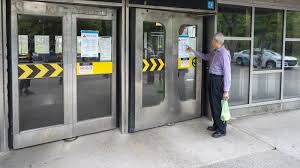
Introduction: The Significance of the STM Strike
The Société de transport de Montréal (STM) has been facing a strike in November 2023, greatly affecting public transportation in Montreal. With public transit being a vital service for daily commuters, the strike’s implications resonate deeply within the community as it disrupts not only the daily lives of residents but also the overall economy of the city. Understanding the reasons behind the strike and its repercussions is essential for residents and local businesses alike.
Details Surrounding the Strike
The STM strike was initiated on November 10, 2023, after failed negotiations between the STM workers’ union and the management over wage increases and better working conditions. Union representatives have stated that their members are seeking a reasonable wage that reflects the increasing cost of living and demands for improved safety measures within the transit system. The strike has led to the suspension of multiple bus and metro lines, frustrating thousands of commuters during peak hours.
Public reaction has been mixed, with some supporting the workers’ demands for fair compensation and conditions, while others express frustration over the disruption of transportation services. The STM has recommended alternative transportation options and encouraged carpooling and other means to alleviate the strain on the city’s roadways, which have seen increased traffic demand as a result.
Local Government’s Response
In light of the ongoing strike, the Montreal city government has intervened by hosting discussions between STM management and the workers’ union in hopes of reaching a peaceable resolution. Mayor Valérie Plante stated, “We must find a solution that prioritizes the needs of both workers and the public while ensuring the reliability of our transit system.” There is optimism that negotiations may lead to an agreement soon, which could resume service and alleviate the growing tensions among transit users.
Conclusion: Looking Ahead
The STM strike in November 2023 highlights significant issues regarding labor relations in public transportation. As negotiations continue, commuters are advised to stay updated on service changes and alternate commuting options. The outcome of these discussions will likely set a precedent for future labor disputes within the city’s public service sector.
In the long term, it is crucial for all parties involved to prioritize the balance between fair labor practices and the essential need for efficient public transportation. The success of these negotiations could pave the way for more stable conditions in this vital sector of Montreal’s infrastructure.



